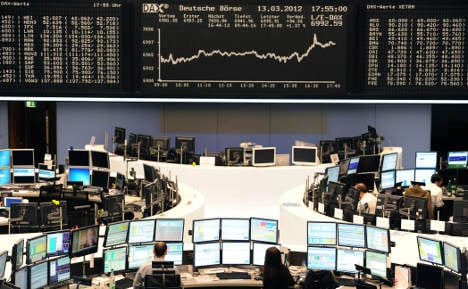The Centre for European Economic Research (ZEW) has a closely watched barometer of investor sentiment, which in May stood at 10.8 points, down from 23.4 points in April.
But analysts surveyed by Dow Jones Newswires had not expected such a steep decline in sentiment, estimating an confidence to be around 19.8 points during May.
“Against the backdrop of the sovereign debt crisis in the eurozone, economic risks have risen during the previous weeks according to financial market experts,” said ZEW president Wolfgang Franz.
Christian Schulz from Berenberg Bank said the data pointed to a softening of growth in Germany, following a much better than anticipated first quarter in which gross domestic product grew by 0.5 percent.
And while the Ifo business index indicated that “after strong growth in Q1 of this year, Germany is likely to head towards a slowdown in the middle of Q2,” Schulz said.
He said that confidence “could rebound again quickly” if the Greek situation is resolved and France and Germany manage to continue their crisis-fighting partnership with a new president in Paris.
For the survey, ZEW questioned analysts and institutional investors about their current assessment of the economic situation in Germany, as well as their expectations for the coming months.
Their assessment of the current situation was up by 3.4 points compared with last month, however, at 44.1 points.
“It may have contributed to this month’s decline that the outcome of the elections in Greece and France has made it more doubtful that European governments will resolutely fight the sovereign debt crisis,” said the ZEW.
Experts often complain that the barometer can be volatile and thus not as reliable as other indicators.
Other business confidence indices, such as the purchasing managers’ index or the all-important Ifo survey, which is based on as many as 7,000 responses in the real economy, are seen as more accurate indicators.
AFP/jcw



 Please whitelist us to continue reading.
Please whitelist us to continue reading.
Member comments